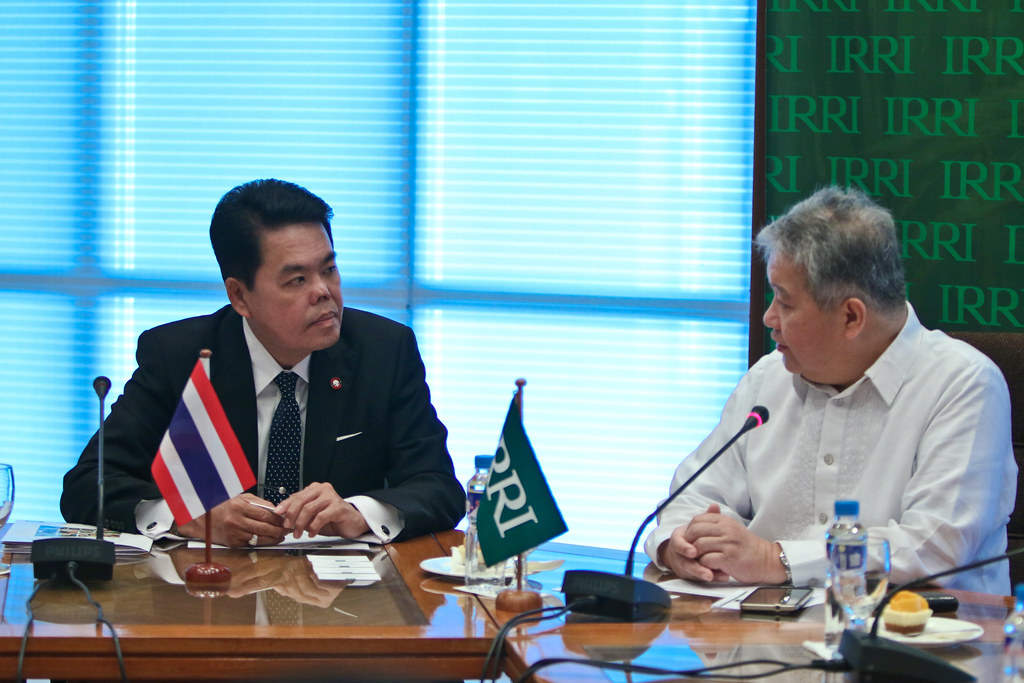H.E. Thanatip (left) gets an update on current rice research collaborative activities from
IRRI communication and partnerships chief Bruce Tolentino (right).
LOS BAÑOS, Philippines—Thailand continues to explore ways of deepening its ongoing collaboration with the International Rice Research Institute (IRRI) through H.E. Mr. Thanatip Upatising, the Ambassador of Thailand to the Philippines.
The Thai ambassador visited IRRI on 17 January to know more about its current partnership with Thailand and explore areas of further cooperation to strengthen regional food security.
"Thank you so much for the kindness and hospitality you extended to me,” said H.E. Thanatip. “This is my first time to visit IRRI. In fact, IRRI is a renowned institute since I was young. I came here to exchange information and see what can be done for the benefit of IRRI and member countries."
IRRI Director General Matthew Morell emphasized the importance of Thai-IRRI collaboration in rice research. He underlined the benefits that flow from rice research into the rest of the Thai economy, as well as the economies of several other Asian nations. Morell also requested the Ambassador’s assistance in facilitating the Host Country Agreement between Thailand and IRRI, which will set the framework for IRRI’s research in Thailand.
The Ambassador was briefed by Bruce Tolentino, IRRI’s deputy director general for Communication and Partnerships, and several scientists and rice experts at the institute on past as well as current IRRI-Thailand cooperation in rice research. IRRI has at least 10 ongoing projects with partners in Thailand. The projects cover the whole rice value chain, from breeding to postharvest. Training and capacity building are also part of the collaborative activities between IRRI and Thailand.
Although Thailand is the leading exporter of indica rice in the world today, the Thai ambassador related how many Thai farmers experienced problems and confusion when exporting rice in the 1960s because of import requirements.
"If the grain is 70% intact, we still classify it as ‘whole grain’ in Thailand,” he said. “But in Canada and Europe, they classify whole grain rice as at least 90% intact. So most of the shipment were rejected by the importer [as broken rice]. That created a lot of problems and confusion."
In response, IRRI scientist Sarah Beebout explained that the Sustainable Rice Platform (SRP) this addressing the issue. SRP is a multi-stakeholder platform that aims to harmonize the different quality standards and create tools for rice growers to use in order to meet the standards.
"Different countries are always going to have somewhat different import requirement,” Beebout said. “One of the parts of SRP is training people how to grow rice through the standard, which is also connected with their target market and specifically understanding the demand. If you know exactly what you're getting into then it's possible to package your product so that it does meet import standards.”
Learn more about IRRI (www.irri.org) or follow us on social media and networks (all links down the right column).


No comments:
Post a Comment